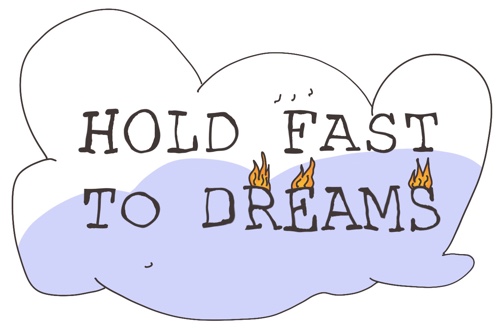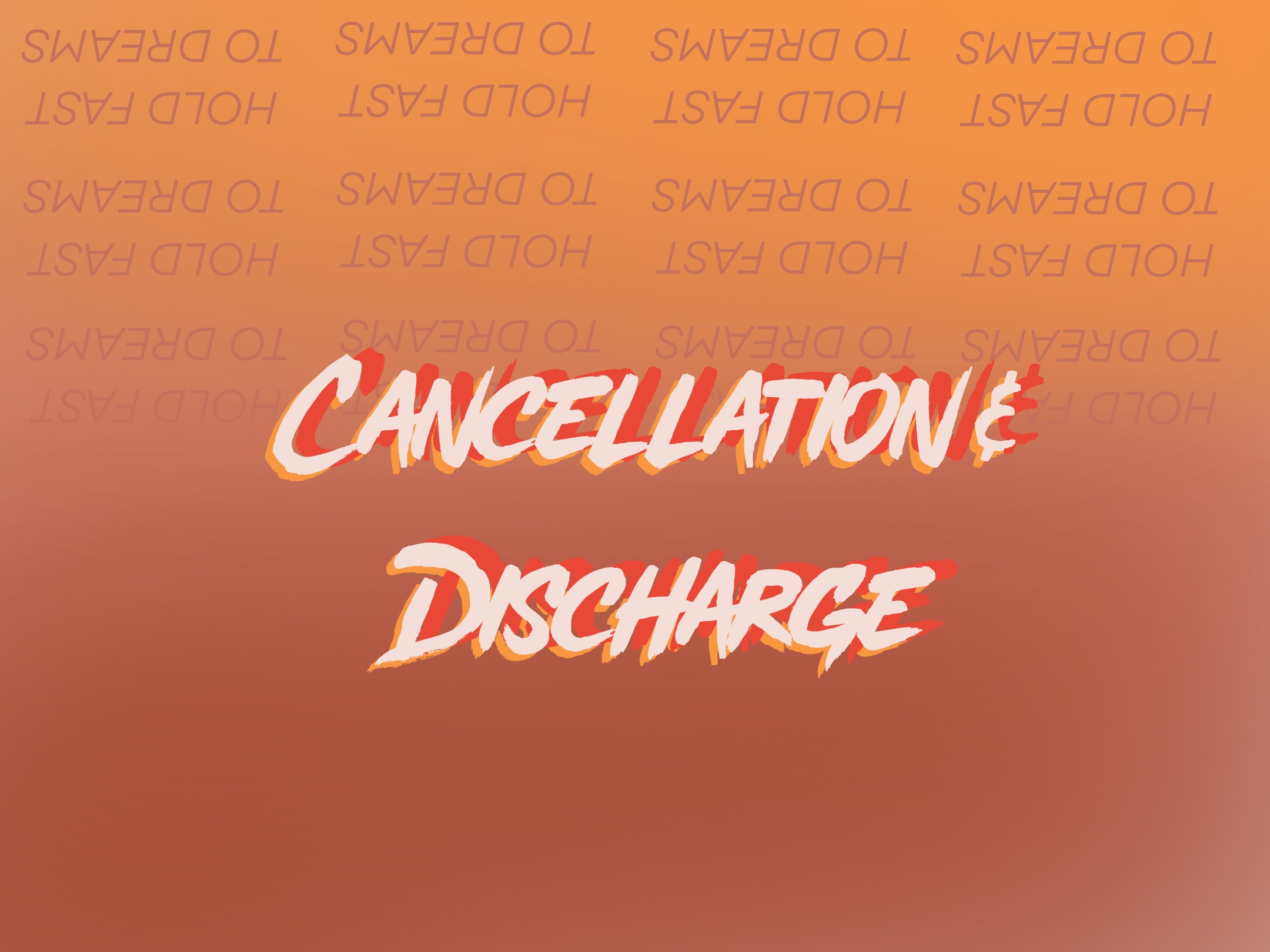Forgiveness, cancellation, and discharge of your loan means that you are no longer expected to repay your loan.
When can my federal student loans be forgiven, canceled, or discharged?
You must repay your loans even if you don’t complete your education, can’t find a job related to your program of study, or are unhappy with the education you paid for with your loan. However, certain circumstances might lead to your loans being forgiven, canceled, or discharged.
For instance, some common examples include loan forgiveness for employment in a public service job and loan forgiveness or cancellation for teachers.
The list below is a quick view of the types of forgiveness, cancellation, and discharge.
| Type of Forgiveness, Cancellation, or Discharge | Direct Loans | Federal Family Education Loan (FFEL) Program Loans | Perkins Loans |
|---|---|---|---|
| Closed School Discharge |
X |
X |
X |
| Public Service Loan Forgiveness |
X |
||
| Teacher Loan Forgiveness |
X |
X |
|
| Perkins Loan Cancellation and Discharge (includes Teacher Cancellation) |
X |
||
| Total and Permanent Disability Discharge |
X |
X |
X |
| Discharge Due to Death |
X |
X |
X |
| Discharge in Bankruptcy (in rare cases) |
X |
X |
X |
| False Certification of Student Eligibility or Unauthorized Payment Discharge |
X |
X |
|
| Unpaid Refund Discharge |
X |
X |
|
| Borrower Defense Discharge |
X |
X* |
*Borrowers may submit borrower defense claims with regard to FFEL Program loans against the holder of the loan only under the circumstances described in 34 CFR 682.209(g).

To view charts of discharges by loan type as well as discharge applications, go to Forgiveness, Cancellation, and Discharge Charts.
False Certification of Student Eligibility or Unauthorized Payment Discharge
You may be eligible for a discharge of your Direct Loan or FFEL Program loan in these circumstances:
- Your school falsely certified your eligibility to receive the loan based on your ability to benefit from its training, and you did not meet the ability to benefit student eligibility requirements.
- The school signed your name on the application or promissory note without your authorization or the school endorsed your loan check or signed your authorization for electronic funds transfer without your knowledge, unless the proceeds of the loan were delivered to you or applied to charges owed by you to the school.
- Your loan was falsely certified because you were a victim of identity theft.
- The school certified your eligibility, but because of a physical or mental condition, age, criminal record, or other reason you are disqualified from employment in the occupation in which you were being trained.
Unpaid Refund Discharge
You may be eligible for a discharge of your Direct Loan or FFEL Program loan if you withdrew from school, but the school didn’t pay a refund that it owed to the U.S. Department of Education or to the lender, as appropriate. Check with the school to see how refund policies apply to federal aid at the school.
Only the amount of the unpaid refund will be discharged. You may qualify for this partial discharge whether the school is closed or open. Contact your loan servicer for more information.
Perkins Loan Cancellation and Discharge
The following Federal Perkins Loan Program cancellations apply to individuals who perform certain types of public service or are employed in certain occupations.
For each complete year of service, a percentage of the loan may be canceled. The total percentage of the loan that can be canceled depends on the type of service performed. Depending on the type of loan you have, and when that loan was taken out, you may be eligible to cancel part of or your entire loan if you have served as one of the following:
- Volunteer in the Peace Corps or ACTION program (including VISTA)
- Teacher
- Member of the U.S. armed forces (serving in area of hostilities)
- Nurse or medical technician
- Law enforcement or corrections officer
- Head Start worker
- Child or family services worker
- Professional provider of early intervention services
There is no standard application form for Perkins Loan cancellations. Contact the school that you were attending when you received the loan.
View the Perkins Loan Cancellation and Discharge Summary Chart.
How do I find out if I qualify and how do I apply to have my loan forgiven, canceled, or discharged?
After reviewing the conditions, if you think you qualify, contact your loan servicer. If you have a Federal Perkins Loan, you must apply to the school that made the loan or contact the loan servicer the school has designated.
Certain types of cancellations are available to military personnel, teachers, nurses, child care providers, or borrowers affected by the closure of a school. Provisions differ depending on the type of loan you have. You can view your loan information including the types of loans you have and your loan servicer by logging in to My Federal Student Aid.
Do I need to make payments while my discharge application is being reviewed?
Yes. Until you hear whether your discharge has been approved, you should continue making payments on your loan to prevent it from going into default or accruing (accumulating) additional interest. However, note the following:
- If you have a Direct Subsidized Loan, Direct Unsubsidized Loan, Federal Subsidized Stafford Loan, or Federal Unsubsidized Stafford Loan, you can be granted forbearance. Your loan servicer should grant forbearance until a decision is made on your application. If forbearance is granted, no one is permitted to collect on your loan until it is determined whether you are eligible for a loan discharge.
- If you have a Federal Perkins Loan, schools automatically defer your loans if you are performing service (such as teaching in a low-income school) that will qualify you for loan cancellation. Check with your school for details.
What happens if my loan discharge is approved?
If you qualify for a complete discharge of your loan, you are no longer obligated to make loan payments. Depending on the type of loan discharge program for which you may be eligible, the U.S. Department of Education may be required to refund to you some or all of the payments you made on the loan. In addition, any adverse credit record related to a default might be deleted, and no tax refund offset or wage garnishment will take place to collect on the discharged loan. If the loan was in default, the discharge may erase the default status. If you have no other defaulted loans, you regain eligibility for federal student aid.
Note: In some cases, your school might be required to refund a portion of a Direct Loan or FFEL Program loan to the U.S. Department of Education (for example, you withdrew from school within a timeframe that required a refund of loan funds). If your school fails to make that refund, that portion of your loan will be canceled, but you will be responsible for paying any remaining amount.
What happens if my loan discharge is denied?
For most discharges, the final decision on whether to discharge the loan cannot be appealed. The two exceptions are false certification and forged signature discharges. If you receive these types of discharges, you may ask the U.S. Department of Education to review the denial.
If your loan discharge is denied, you remain responsible for repaying the loan. Talk to your loan servicer about repayment options if you have a Direct Loan or FFEL Program loan. Check out repayment options.
If your loan is in default, go to Understanding Default for more information.
If your school has closed, you should also explore the following options if your discharge application is denied:
- Contact the state licensing agency and ask if there is a tuition recovery fund or performance bond that will cover your damages based on the school closure.
- If the school filed bankruptcy, you should file a claim for your loss in the bankruptcy proceeding. You also might want to consult an attorney about any options you may have through the court system.
Common Questions
The following are some common questions about loan forgiveness, cancellation, or discharge.
I was very young when I borrowed this money. Do I still have to pay?
Yes. The fact that you didn’t fully understand the implications of getting a loan, or the fact that it’s been many years since you signed for the loan, does not mean that you do not have to pay.
I signed the Master Promissory Note but I didn’t attend class. Do I still have to pay?
If you received the proceeds of a loan but never attended classes, you are obligated to return the funds immediately. Your school will return any funds that it received and applied to your account. If you do not return the funds that you directly received, your loan will be placed in default.
I’m a parent that took a PLUS loan to help pay for my child’s education. Can my loan ever be forgiven, canceled, or discharged?
You must repay your parent PLUS loan even if the student doesn’t complete his or her education or can’t find a job related to the program of study, or if you or the student is unhappy with the education. However, the loan may be discharged if the child for whom you borrowed dies, or if you die or become totally and permanently disabled.
We may discharge some or all of your loan in any of these circumstances:
- The school closed before the student completed the program.
- The school forged the signature on your promissory note or falsely certified that you were eligible for aid.
- The loan was falsely certified through identity theft.
- The student withdrew from school but the school didn’t pay a refund that it owed. Check with the school to see how refund policies apply to federal aid at the school.
- The loan was discharged in bankruptcy claim. This is not an automatic process—you must prove to the bankruptcy court that repaying the loan would cause undue hardship.
Contact your loan servicer for more information. If you don’t know who your loan servicer is, visit My Federal Student Aid.

